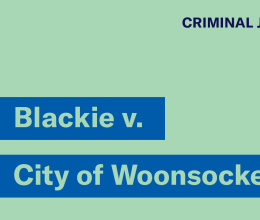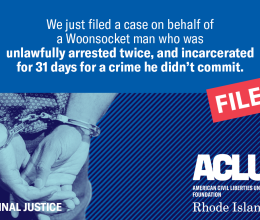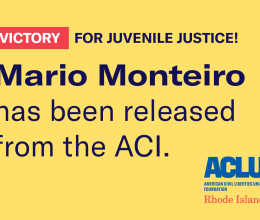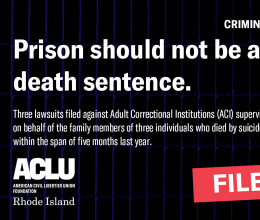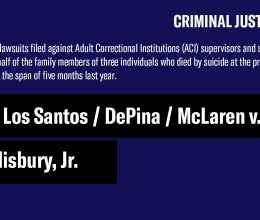More than twenty community organizations representing youth, nonviolence, and civil rights have urged Governor Chafee to veto legislation purportedly aimed at “criminal street gangs” that the groups say will likely target at-risk youth.
Passed by the House on the last day of the legislative session after more than an hour of contentious debate, the legislation (H 7457/S 2639) imposes an enhanced prison sentence of up to ten years for anyone convicted of a felony committed “for the benefit, at the direction of, or in association with any criminal street gang or criminal street gang member.” In a letter sent yesterday, the community groups – including the Institute for the Study and Practice of Nonviolence, Providence Youth Student Movement, and the Rhode Island Civil Rights Roundtable – told the Governor “it is all but guaranteed that this bill will be used not against gang members committing violent offenses, but against at-risk youth making mistakes.”
The groups note that the bill’s definition of a “criminal street gang” is “so broad as to be almost no definition at all” and “makes no differentiation between a ‘gang’ that engages in occasional random acts of vandalism and one that has been involved in murders and other serious felonies.” The Providence police department, the letter notes, has an extensive gang database, but no standards to determine which youth get listed in the database as a “gang” member.
The letter further notes that young people coerced into committing crimes for a gang, facing threats of punishment and harm if they fail to do so, would likely bear the brunt of the enhanced sentencing provisions. The letter adds: “Instead of assisting youth who are at risk of becoming involved with dangerous individuals, this legislation puts the state in the position of locking up these at-risk youth for lengthy periods of time with exactly the kind of individuals we should be trying to help them avoid.”
The letter concludes: “It is the low-income and minority communities that suffer the most from gang violence. But it is also those communities that suffer the most from overly harsh sentencing laws that, either in purpose or effect, target inner city youth and adults.”
Teny Gross, Executive Director of the Institute for the Study and Practice of Nonviolence, said today: "While I share the concern of the General Assembly and wish to address violence in our communities, this bill takes us in the wrong direction. It is open-ended, and will increase costs to the taxpayer. Every additional year in sentence given for a ‘gang member’ could pay for five returning inmates’ employment engagements for a full year after they pay their debt to society, and join the ranks of the rest of us taxpayers. Newt Gingrich and other conservative leaders have proposed an initiative to cut in the next few decades our incarceration rates by 50%. We cannot afford to be the state who adds to our incarceration costs.”
Chanravy Proeung and Sarath Suong, Co-Directors of the Providence Youth Student Movement, remarked in a statement: "As the United States moves forward to decrease incarceration rates of young men of color, Rhode Island has taken steps back. To address street violence, our communities must look into root causes like extreme poverty, educational disparities, and lack of social and support services. The enhancement of prison sentences based on gang affiliation with such a broad definition targets Southeast Asian youth, young men of color, and low-income communities; these policies will not stop violence in our streets. It will instead add to the continuous cycle of breaking families apart, increase single parent homes, and ultimately push our communities further into poverty."



